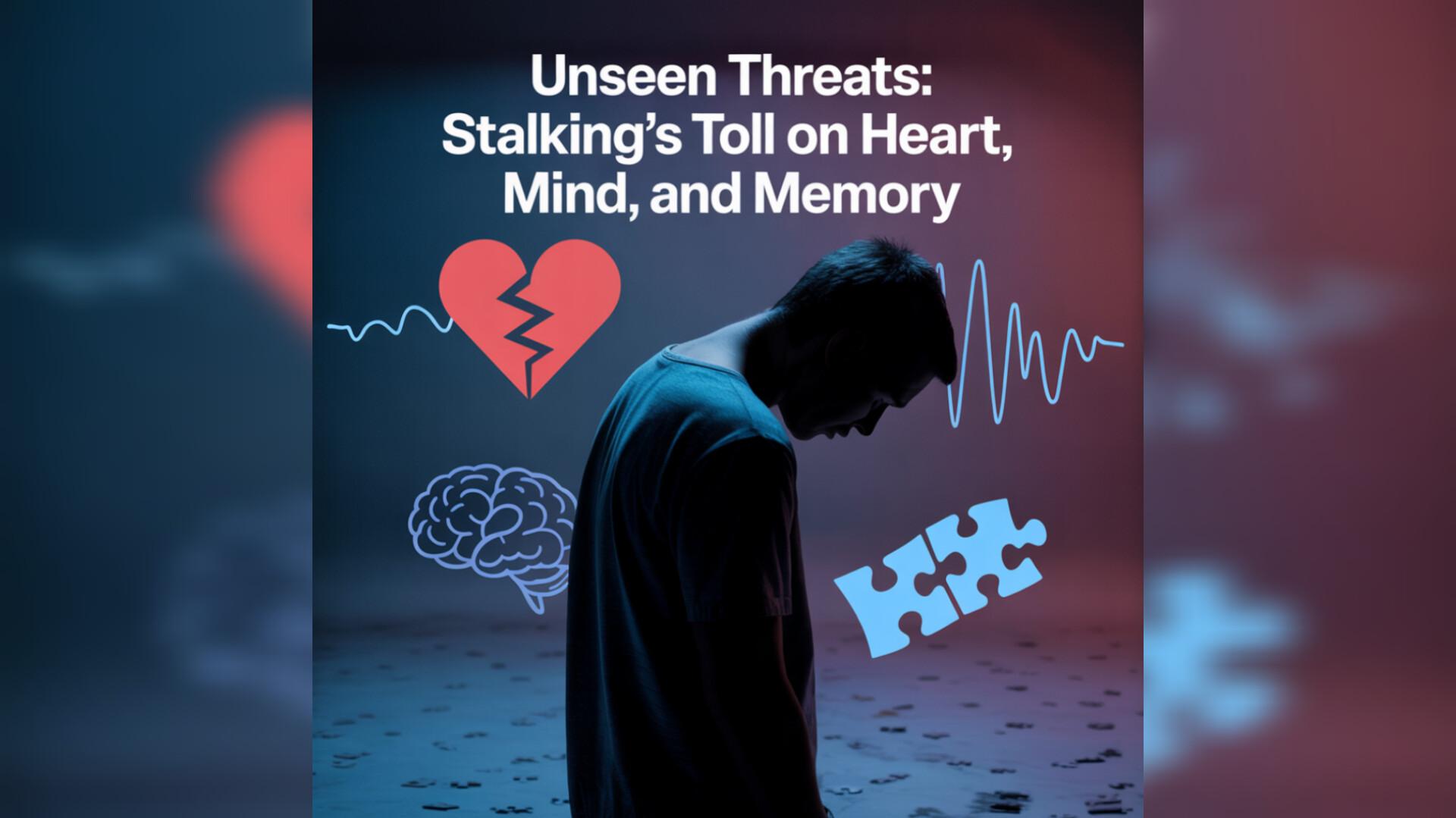Stalking and CVD: Mental Health Disorders and Dementia
Stalking is a serious issue affecting millions globally.It involves repeated, unwanted behaviors causing fear or distress.These can range from following someone to sending unsolicited messages.The impact goes beyond immediate fear, affecting physical and mental health.
This article explores stalking’s links to cardiovascular disease (CVD), mental health disorders, and dementia.
What Is Stalking?
Stalking is more than just unwanted attention—it’s psychological warfare.
Behaviors include monitoring, harassing, or threatening a victim.
It erodes a person’s sense of safety and autonomy.
About 1 in 6 women and 1 in 17 men in the U.S. have faced stalking.
It’s not limited to strangers; it often involves ex-partners or acquaintances.
The Psychological Toll
Stalking takes a heavy toll on mental health.
Victims often develop anxiety, depression, or post-traumatic stress disorder (PTSD).
The constant fear triggers chronic stress, releasing cortisol.
Studies show up to 40% of victims meet clinical mental health diagnoses.
PTSD symptoms include flashbacks, nightmares, and avoidance behaviors.
Stalking and Perpetrators’ Mental Health
Stalkers themselves may have mental health issues.
Conditions like borderline or narcissistic personality disorders are common.
Research links stalking to obsessive behaviors in perpetrators.
This creates a cycle where mental health issues fuel harmful actions.
Understanding this duality helps in addressing the root causes.
Mental Health Interventions
Victims often hesitate to seek help due to shame or fear.
Therapy and support groups can mitigate conditions like anxiety or OCD.
Integrating mental health screenings into stalking reports is crucial.
Early intervention can prevent long-term psychological damage.
Community resources must be accessible and stigma-free.
Stalking and Cardiovascular Disease
Chronic stress from stalking increases cardiovascular disease (CVD) risk.
A 2025 study found a 41% higher CVD risk in stalked women.
Those with restraining orders faced a 70% increased risk.
Stress causes inflammation, damaging blood vessels and raising blood pressure.
This can lead to atherosclerosis and heart events.
How Stress Affects the Heart
Stalking disrupts the autonomic nervous system.
It causes persistent high heart rates and arterial strain.
Experts note that poor coping mechanisms worsen outcomes.
Unhealthy habits like smoking or poor diet compound risks.
Men, though less studied, face similar cardiovascular threats.
Stalking and Dementia Risk
Chronic stress from stalking may increase dementia risk.
High cortisol levels can shrink the hippocampus, impairing memory.
Sleep issues and isolation, common in victims, are dementia risk factors.
Reports suggest stalking-induced paranoia mimics early dementia symptoms.
PTSD, prevalent in victims, raises dementia risk by 50-200%.
Special Risks for Older Adults
Elderly victims face unique challenges.
Studies show cognitive issues may hinder reporting.
Isolation from stalking increases dementia risk by up to 60%.
Tailored support for older adults is essential.
Cognitive behavioral therapy can help manage stress.
Biological Mechanisms
The hypothalamic-pituitary-adrenal (HPA) axis drives these health effects.
Excess glucocorticoids cause inflammation in the body and brain.
This leads to neurotransmitter imbalances, fostering mental disorders.
For CVD, inflammation causes endothelial dysfunction.
In dementia, it may contribute to amyloid plaque buildup.
Lifestyle and Genetic Factors
Stalking victims may neglect exercise or healthy eating.
This heightens CVD and dementia risks.
Research calls for multidisciplinary care.
Genetic predispositions can amplify vulnerabilities.
Epigenetic changes from stress may pose long-term risks.
Prevention and Support
Victims should document incidents and seek legal protection.
Counseling and hotlines provide emotional support.
Mindfulness and yoga can reduce stress hormones.
Media coverage highlights stalking as a public health issue.
Stronger cyberstalking laws are needed in the digital era.
Role of Healthcare
Doctors should screen for stalking during check-ups.
This can identify CVD and mental health risks early.
Lifestyle interventions can mitigate stress-related damage.
Personal stories emphasize the need for compassionate care.
Multidisciplinary approaches combining psychology and cardiology are key.
Societal and Policy Changes
Education campaigns can deter potential stalkers.
Workplaces and schools need anti-stalking protocols.
Mental health resources for perpetrators can break the cycle.
Public awareness reduces stigma for victims.
Policy advocacy ensures better protection and support.
Conclusion
Stalking’s impact extends to CVD, mental health, and dementia.
Chronic stress is the common thread, harming body and mind.
Early intervention and support can save lives.
Reach out for help—your health depends on it.
